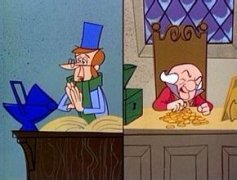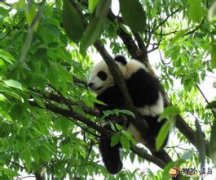The Gardener and the Family 园丁和主人-童话故事
编辑:高中作文网 阅读 次FOUR or five miles from the capital stood an old manor, with thick walls, tower, and pointed gables.
Here lived, but only in the summer-time, a noble family: this manor was the best and most beautiful of all the estates they possessed: outside, it looked as if it were newly built, and inside was very comfortable and cosy. The family coat of arms was carved in stone over the door, lovely roses twined themselves over the coat of arms and over the balcony, and a beautiful lawn stretched out before the house: there were red thorns and white thorns, and rare flowers even outside of the hot-house. The family had a very good gardener; it was a treat to see the flower garden, the fruit and kitchen gardens. Up to this time there was still a part of the original old garden, with some box hedges, cut in the shapes of crowns and pyramids. Behind these stood two old trees: they were nearly always leafless, and one could easily believe that a wind storm or a water-spout had strewn them over with great clumps of manure, but every clump was a bird’s nest.
Here from time immemorial a swarm of screaming crows and rooks had built their nests. It was a whole bird town and the birds were the proprietors, the eldest branch of the. family, the real masters of the estate. None of the people down there concerned them, but they tolerated these low walking creatures, although they sometimes shot with guns, so that it gave the birds shivers along the spine, and every bird flew up in a fright and shrieked “Rak! Rak!” The gardener talked often to his master about cutting down the old trees, they did not look well, and if they were taken away, one would most probably be free from the screaming birds-they would search for another place then. But the master would neither be free from the trees nor the swarms of birds-it was something which the estate could not lose, it was something from the old times, and one ought not to wipe that out entirely.
“The trees are now the birds’ inheritance, let them keep it, my good Larsen!”
The gardener was called Larsen, but that is of no further importance.
“Have you, little Larsen, not enough room for working the whole of the flower garden, the greenhouses, the fruit and kitchen gardens?”
These he had, and nursed them, loved them, and cared for them with earnestness and capability, and the family knew that, but they did not hide from him that when visiting they often ate fruit and saw flowers which excelled what they had in their own garden, and that distressed the gardener, for he wished to do his best and he did his best. He was good of heart, and good in his work.
One day the master called him and said in all mildness and dignity that the day before, when with distinguished friends, they had got a variety of apples and pears, so juicy and so well flavoured that all the guests had exclaimed in admiration. The fruit was certainly not native, but it ought to be brought in and made at home here if the climate allowed it. One knew that it had been bought in town at the principal fruiterer’s: the gardener should ride in and get to know where these apples and pears came from and order cuttings.
The gardener knew the fruiterer very well, for it was to him that he sold, on the proprietor’s account, the surplus of the fruit which was grown in the gardens of the estate.
And the gardener went to town and asked the fruiterer where he got these highly prized apples and pears.
“They are from your own garden!” said the fruiterer, and showed him both apples and pears, which he knew again.
How delighted the gardener was! He hurried home and told the family that both the apples and pears were from their own garden.
The family could not believe that. “That is impossible, Larsen! Can you get a written assurance from the fruiterer?”
And that he could, and so he brought a written assurance.
“That is extraordinary!” said the master.




